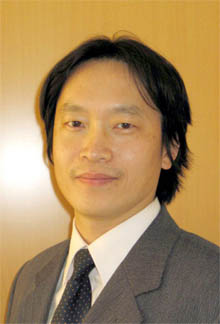 |
While at the White House, Hu quoted a line from a poem by Du Fu (712-770 AD): "I ascend to a high place to look afar." This is exactly what Jiang wrote in traditional calligraphy while visiting Japan in November 1998. A correspondent for The Hankyoreh in Beijing, I repeatedly feel I am listening to scripted comments whenever I hear statements by high-ranking Chinese leaders. This has been true at the press conferences held by prime minister Wen Jiabao following the full session of the National People’s Congress every March, and in the comments of Hu or NPC Standing Committee chairman Wu Bangguo after their frequent meetings with foreign leaders. Sometimes you can almost predict what Chinese leaders are about to say. When they talk about Sino-Japanese relations, the first choice from the menu is to begin their speech, "With history as a mirror..." When they talk about Sino-American relations, they often begin with, "China values peace and development..." People from outside China who hear their eloquent, politically correct, "text readings" for the first time are often moved. But that’s where it stops. These "politically correct" scripted lines are not something exclusive to high-ranking leaders. It is part of the political culture of Chinese Communism, from the party right down to the Communist Youth League. Even graduate or university student leaders can be heard suddenly jumping up at the appropriate moment and issuing politically correct statements that sound as if they’re being read off a teleprompter. If you can’t speak the lines from the same menu of appropriate sound bites, you’ll never get to be a low-level secretary in a party organization, let alone make it to the upper echelons of the party apparatus. Hu and the rest of China’s leadership echoed the same lines hundreds of times during their 30 to 40 years spent in the closed room of party politics. The reason Chinese Communist Party leaders are so "circumspect" is because they speak in the gloomy shadow of Big Brother. As for criticisms of Roh, speaking in ’odds and ends’ might be an unavoidable phenomenon in a democratic society. Finding comments made from the Communist Party’s ’democratic’ closed-room culture attractive is up to personal taste - or lack thereof. But it has to be understood that unless Korean society becomes totalitarian, there are invariably going to be voices of sincerity colliding in the open spaces of the public sphere. That is because democracy is a political culture that demands tolerance and patience towards utterances that depart from the script.





